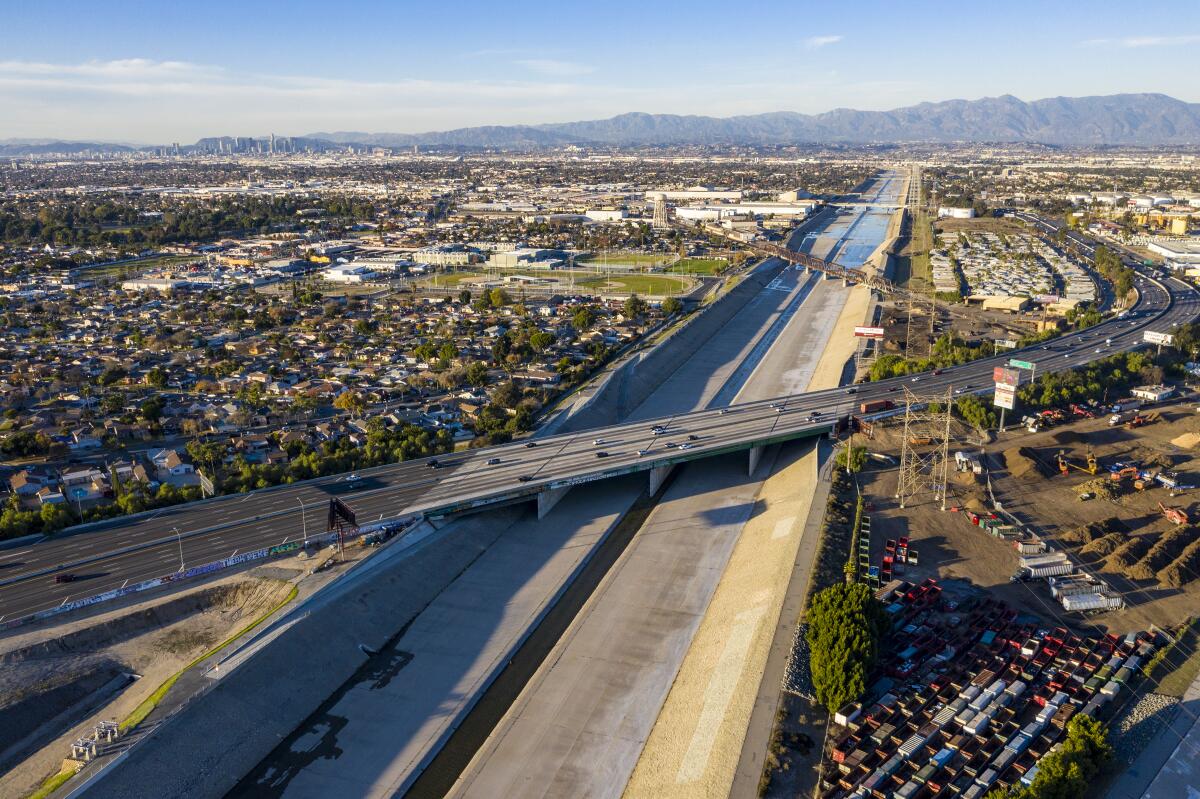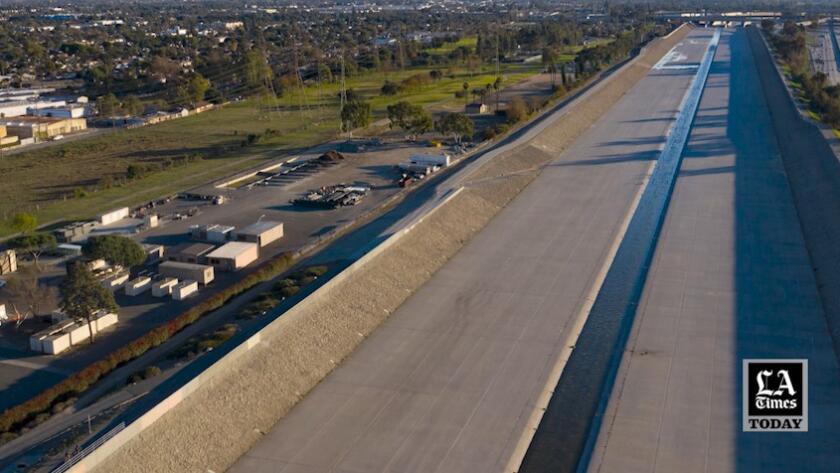County approves L.A. River Master Plan over 11th-hour objections from environmental groups

- Share via
After a coalition of environmental groups withdrew support for the L.A. River Master Plan over differences with its recommendations for uplifting the profile of the concrete flood control channel over the next 25 years, L.A. County officials decided Tuesday to move forward with the plan.
The groups had been threatening to walk away since Los Angeles County Public Works included far-reaching proposals submitted by famed architect Frank Gehry to transform the forlorn industrial confluence of the Los Angeles River and the Rio Hondo in South Gate into a cultural park.
Still, the L.A. County Board of Supervisors voted Tuesday to adopt the final L.A. River Master Plan.
“The L.A. River Master Plan is one of the most robust, progressive and community-driven planning efforts ever undertaken by L.A. County,” said Mark Pestrella, director and chief engineer of the Los Angeles County Flood Control District.
“It addresses a wide range of priorities brought to us over three years of community engagement, including ecological disparities, homelessness, gentrification, and limited access to public open space and clean water,” he said. “We considered all viewpoints and perspectives, and the county will continue to work with those who may not have seen their priorities elevated over those of others in the final draft of the plan.”
Jon Christensen, an environmental historian at UCLA, mused, “It would be surprising if the L.A. River Master Plan were not controversial in some ways.”
“Angelenos have been debating the fate of the Los Angeles River and its future for decades now,” Christensen said. “The Los Angeles River Master Plan takes on the nearly impossible task of reconciling all those competing hopes and visions for the river and for communities along the river.”
- Share via
Watch L.A. Times Today at 7 p.m. on Spectrum News 1 on Channel 1 or live stream on the Spectrum News App. Palos Verdes Peninsula and Orange County viewers can watch on Cox Systems on channel 99.
Critics are especially concerned about Gehry’s vision of “elevated platform parks” — massive, bridge-like green spaces that occupy government airspace high above the channel’s floor, and 4 feet above the rim of the channel walls. Constructed on hulking concrete planks and enormous girders, the structures would stretch nearly a mile over both rivers and support a landscape of trees, grass, scenic ponds, horse trails and walking paths.
Gehry and the plan’s development team regard the proposal as a way of improving some of Southern California’s poorest, most densely populated communities — and atoning for racial and institutional injustices that have stymied their progress since World War II.
But influential nonprofit environmental groups led by Friends of the Los Angeles River, East Yard Communities for Environmental Justice, Los Angeles Waterkeeper, Heal the Bay and the Nature Conservancy in California would prefer to see naturalization of the river itself.
The coalition announced its decision in a recent letter to county officials and architects that said, in part, “to our dismay, the final plan fails to incorporate our feedback in any meaningful way.”
“We expect the county to remove our names and logos from the plan accordingly,” it added, “unless and until our organizations are given the ability to make a formal vote and have that vote reflected in the plan.”
In an interview, Laura Cortez, co-executive director of East Yard Communities for Environmental Justice, summed up what she described as the coalition’s “core concern.”
“The L.A. County Public Works made us believe that through its steering committee we would have real community engagement,” she said, “and that it intended to think out of the box and not just add more concrete to the channel.”
“Instead,” she said, “our comments fell on deaf ears.”








